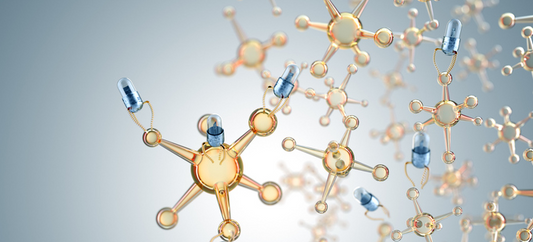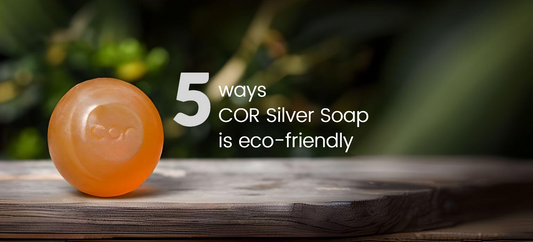You'll see the word noncomedogenic on lots of makeup and skincare product labels these days. What does it mean?
Noncomedogenic refers to products that don't block the pores of your skin.
A 'comedo' is a type of blemish resulting from a blocked pore – according to the American Academy of Dermatologists, a comedo is a very mild form of acne. So that's how we get to the word 'noncomedogenic'.
So far, so simple, right? What's not so simple is that the use of this term is not regulated by the Food and Drug Adminstration (FDA) or anyone else in the U.S. There are no specific requirements that a product has to meet in order to be labeled as noncomedogenic.
For most cosmetics and skincare products, the word indicates that the product does not include oil. Your skin already produces oil on its own – sebum is the name of an oil naturally produced by our sebaceous glands – and it's good for your skin. However, excessive oil blocking pores is one of the main contributors to blemishes and acne.
Is it important and valuable for a skin product to not block up your pores? Yes, of course.
But is the term noncomedogenic any sort of guarantee? No, unfortunately it is not. Especially if your skin is prone to acne or other breakouts, it's worth checking the ingredients list of any product you're going to use on your face.
What skincare ingredients block skin pores?
In addition to oils, WebMD.com has a list of other ingredients that DO have a tendency to block skin pores – so these are ingredients to avoid:
- isopropyl palmitate
- isopropyl myristate
- butyl stearate
- isopropyl isostearate
- decyl oleate
- isostearyl neopentanoate
- isocetyl stearate
- myristle myristate
- cocoa butter
- acetylated lanolin
- and D & C red dyes
We guess those ingredients are "comedogenic"!
(WebMD articles are formally reviewed by doctors for accuracy.)
Can I find a noncomedogenic moisturizer?
According to that WebMD piece, people with acne-prone skin sometimes avoid using moisturizers, because they are worried about making their breakouts worse.
But acne treatments that use benzoyl peroxide or salicylic acid (which is most of them) really dry out your skin. We know this from personal experience! So a noncomedogenic moisturizer can really make a huge difference in keeping your skin healthy and looking fresh.
Since any product can label itself "noncomedogenic", we'll just describe how we chose COR's moisturizing ingredients — COR Silver Soap was created to help our founder Jennifer McKinley deal with this exact problem of cleaning and moisturizing her own breakout-prone skin.
First of all, COR includes hyaluronic acid, which draws and holds moisture in the skin. (It's quite different from salicylic acid, a harsh acid that other products use for dissolving dead cells and pore blockages.) Hyaluronic acid is highly noncomedogenic.
COR also taps into the moisturizing power of natural high-quality oils including olive, avocado, and grape seed, all delivered in nanoparticle size. There's a common misconception that all oils are bad for the complexion — in fact, your face naturally produces oil to protect itself from the environment. As we noted up top, this isn't bad. It only becomes bad when excess oil blocks pores; it's the blockage that causes breakouts, not the oil itself. COR's nanoparticles are smaller than skin pores, so the moisturizing and hydrating ingredients can go deep into the skin WITHOUT causing blockages.
So, TLDR: Yes, a well-formulated product can moisturize facial skin, without plugging pores and increasing breakouts. (If you haven't already, try COR and see for yourself!)
About the author: Jennifer McKinley founded COR Silver Skincare more than 15 years ago.
Follow us on TikTok and Instagram for more skincare tips!





